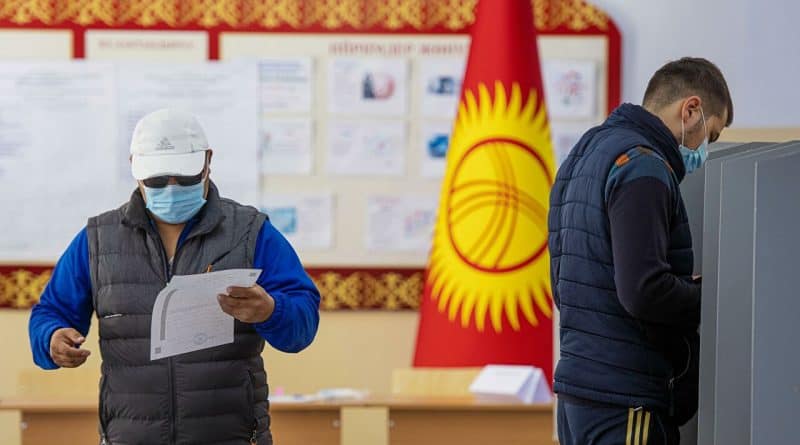Study: Kyrgyzstanis showed an average level of confidence in the elections
The Public Foundation “Common cause” conducted a study to determine the level of confidence of Kyrgyzstan’s citizens in the parliamentary elections held in November 2021.
As part of this sociological study, the Foundation collected the opinions of citizens of the Kyrgyz Republic about how they relate to the past elections of parliamentarians and how much they trust certain electoral processes.
The survey involved 1,202 people over 18 across the country. The study was conducted from 13 to 24 December 2021.
According to the results of the study, the general index of public confidence in the electoral system amounted to 0.44 points. This means that the confidence of the citizens of Kyrgyzstan in the electoral system is at an average level.
In general, the respondents are more inclined to trust the electoral system than distrust. However, it should be noted that the population cannot fully trust any of the criteria.
The highest confidence was observed in terms of the absence of intimidation, pressure on voters, observers and agitators.
The greatest distrust was expressed in the income and expenses of the election funds of candidates with an index (-0.14).
According to the Central Election Commission, about 3.6 million eligible voters were included in the voter lists. The survey results showed a relatively low level of confidence among respondents who had the right to vote in the elections (-0.26 points).
“It’s worth noting that among the citizens of Batken region, the level of trust is practically close to zero (0.06 points), which means that the population cannot decide whether to trust this electoral process or not. The index of trust on the part of the citizens of Talas region is also significantly low, amounting to 0.18 points,” the authors of the study note.
When asked what caused the low turnout in the elections, the majority of respondents thought that this could be due to the population’s distrust of the honesty of the elections (39.8% of respondents), as well as belief in the absence of worthy candidates (7.6% of respondents).
At the same time, 31.6% of the respondents found it difficult to answer or didn’t know how to respond.
According to the survey, respondents from Bishkek city and Chui region expressed relatively low confidence in this electoral process. Absolute confidence was expressed by the citizens of Osh region.
The most distrustful were young people aged 18 to 29 years. Respondents of the older generation (aged 60 and older) expressed high confidence.
Lack of transparency of income and expenses of election funds of candidates was observed at a significantly low level of confidence among the surveyed citizens (-0.14 points). In particular, distrust was observed among the residents of Bishkek (-0.47).
According to the study, there was no obvious intimidation and pressure on voters (0.71), candidates (0.70), agitators (0.69) and observers (0.72) throughout the entire election campaign. In this regard, the interviewed respondents expressed their high confidence in these electoral aspects.
“Comparing the results of the study in all regions, it can be noted that among the surveyed citizens living in Bishkek, there are noticeably low scores for the level of trust in elections compared to the results in other regions. The highest scores were recorded among respondents from Osh region.
Election day passed peacefully and calmly. According to the answers of the respondents, the secrecy of the vote during the elections was mostly observed,” the authors of the study came to such conclusions.
It was also noted that in the whole country, the voting day was transparent and without falsifications.
“The highest level of trust was observed among respondents from Osh and Jalal-Abad regions. However, respondents from Bishkek have the least confidence that the voting day was transparent and without falsifications,” the study says.




